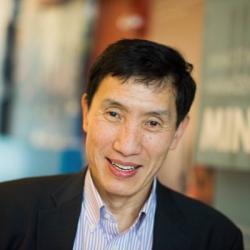

10:00 am EST - 11:00 am EST
Past Event
10:00 am - 11:00 am EST
1775 Massachusetts Avenue N.W.
Washington, DC
20036
Human capital plays an increasingly important role in the sprawling competition between the United States and China. The ability of both Washington and Beijing to sustain economic growth; secure supply chains; create robust science, technology, engineering, and mathematics (STEM) sectors; and develop the workforce for the industries of the future depend on their ability to attract and cultivate both domestic and foreign talent. This contest between two of the world’s major powers for the best and the brightest has highlighted several core strengths and weaknesses of how both countries approach talent cultivation. What is the biggest human capital advantage — and weakness — of both the United States and China? What areas of talent cultivation are most overlooked in each country? What lessons should each superpower take from the other in the arena of talent competition?
On January 10, the John L. Thornton China Center at Brookings and the Freeman Chair in China Studies at CSIS jointly hosted a panel of experts to discuss the human capital dynamics and respective policy approaches between the U.S. and China and how they will affect geopolitical and economic competition both domestically and on the world stage.
Viewers submitted questions by emailing [email protected] or on Twitter using the hashtag #VyingforTalent.
In Partnership With

Moderator

Panelist




Thinley Choden
May 3, 2024

Ghulam Omar Qargha, Rachel Dyl, Sreehari Ravindranath, Nariman Moustafa, Erika Faz de la Paz
May 3, 2024

Kathy Hirsh-Pasek, Rebecca Winthrop, Sweta Shah
May 2, 2024